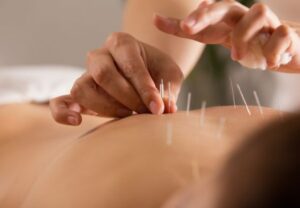
Acupuncture is an ancient Chinese practice that involves the insertion of thin needles into specific points on the body to help regulate energy flow, mitigate pain, and improve overall health. While many people are interested in the benefits of acupuncture, a common question that arises is whether or not acupuncture hurts. This is a valid concern, especially for those who are scared of needles or have a low pain tolerance. In this blog post, we will explore the question of whether acupuncture hurts and provide you with information to help you feel more at ease if you are considering this ancient practice.
Firstly, it’s essential to understand that everyone’s pain tolerance is different. Acupuncture needles are hair-thin, and patients usually describe the insertion as a minor discomfort or a sensation of pressure. Some say they don’t feel the needles at all, while others find it to be painful, especially in areas with more nerve endings or thinner skin. However, pain during acupuncture treatment is typically subjective and fleeting.
Secondly, it’s important to note that acupuncture needles are not like the needles used for vaccinations. Unlike a vaccination needle, the tip of acupuncture needles is not hollow and sharp but rather comes with a tiny rounded tip, which means the needles push aside tissue instead of cutting through it. This is why the puncture is barely detectable.
Thirdly, acupuncturists prioritize your safety and comfort during the treatment session. Before the treatment, the acupuncturist will discuss your pain tolerance, areas of concern, and overall health status. They will also explain the needling technique and ask for your feedback during the procedure to help you feel more comfortable. In addition, they may use soothing techniques, such as using heat or applying pressure to help alleviate discomfort.
Finally, the benefits of acupuncture often outweigh any potential discomfort. Acupuncture can help treat various conditions such as anxiety, headaches, back pain, and digestive problems. Acupuncture releases endorphins, which can lead to feelings of well-being and relaxation. It can also stimulate the immune system and provide stress relief, which are all worth exploring for many individuals.
In conclusion, acupuncture needles don’t usually hurt when inserted. However, the experience is subjective. Acupuncturists prioritize the patient’s well-being and comfort during the treatment by explaining the needling technique and providing support during the procedure. By understanding the benefits of acupuncture and preparing for the procedure, you can feel more comfortable and make an informed decision about whether it’s right for you. So, don’t let the fear of the unknown hold you back, and consider exploring acupuncture as an alternative therapy in helping you manage your health and wellness.


Follow Us